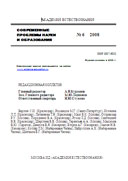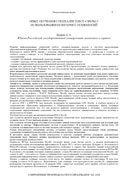PDF-версия статьи


|
• Why do you think English is an important language?
• Do you think English is more difficult to learn than other languages?
• Which dialect of English do you think should be taught?
• Do you think it is important to speak English with native-like pronunciation?
• Do you think English has any qualities that make it different from other languages?
Although teachers´ beliefs about English may sometimes represent stereotypical impressions, these beliefs do nevertheless express realities which may influence classroom practices.
Any language teaching program reflects both the culture of the institution, as well as collective decision and beliefs of individual teachers. Some programs may have a distinct philosophy aiming to implement the following beliefs about curriculum processes:
- decentralized curriculum planning
- a needs- based curriculum
- a range of teaching methodologies
- learner- based classrooms
- autonomous learning
- authentic materials
- multiculturalism
Teachers also have specific beliefs about problems with the programs they work in, which they may pass on to new teachers who enter the program. For example,
Teachers tend to work in isolation from each other.
Teachers do not have much understanding of the overall philosophy of the program. There is no proper way of placing student into the most appropriate classes. There are too few teachers´ meetings. The assessment instruments we are required to use do not match the communicative approach we are trying to implement.
Bibliography:
1. Abbott, G.,D. McKeating, J. Greenwood, and P. Wingard. 1981.//The teaching of English as an international language. A practical guide. London: Collins.
2. Baddeley, A.1990.//Human memory: Theory and practice. Hove: Lawrence Eelbaum Assosiates.
ОПУБЛИКОВАНО
Shokhakhov I.S., Kalibekova L.A., Ormakhanova G.S., Zhekebay A.D., Sandybaeva A.G. BELIEFS ABOUT ENGLISH, LEARNING, LANGUAGE TEACHING AS A PROFESSION, THE PROGRAM AND THE CURRICULUM. // Современные проблемы науки и образования - 2015.-№6. (приложение "Педагогические науки"). - C. 11